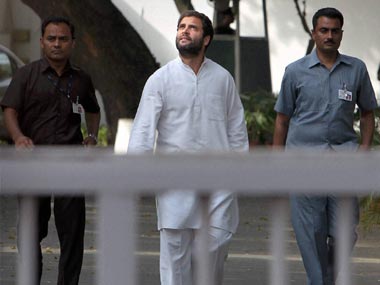It’s possible.
A Reuters BreakingViews column suggests that “Rahul Gandhi’s electoral drubbing may just be the boost India needs”. Writer Jeff Glekin says the results prove the Congress can no longer rely on handouts and the Gandhi family magic.
That’s true. A Congress-initiated financial package worth more than Rs 6,000 crore for weavers did not translate into votes for the party in Uttar Pradesh, home to more than two lakh weavers.
The column also notes that the regional parties which performed well in elections so far have done so on platforms of reform and development. “Congress could embrace that message too – for example, moving decisively to liberalise markets, increase the ease of doing business in India and invite foreign competition. All could help revive the economy, and win popularity,” he writes.
A blog post in The New York Times uses similar reasoning to argue that Congress’ rout could prompt the party to pull out all the stops on economic reforms (the post looks at both sides of the argument on whether the UPA will act on reforms going ahead).
“The case for why the federal government will get moving can be summed up in two words: survival instinct,” the post notes. “It now has just two years to revive the economy and tame inflation before the 2014 national elections. And the only surefire way it can do so is to get to work on all the proposals that have been piling up at the Planning Commission and the Finance Ministry.”
[caption id=“attachment_237182” align=“alignleft” width=“380” caption=“Results prove the Congress can no longer rely on handouts and the Gandhi family magic.PTI”]  [/caption]
The post also refers to similarities with 1991 to buttress that view. “Remember, it was a weak Congress government that enacted the first significant economic reforms in 1991. And it only started to do so because the country’s finances were in terrible shape. The same is true again now,” it says.
Both the Reuters and NYT points of views, arguably, run contrarian to what most other reports say, which is that the election losses will restrain the government’s appetite to push through unpopular or controversial reforms, such as introducing foreign direct investment in multi-brand retail.
“The results will not provide the political space for the government or give it the confidence to carry through unpopular reforms,” Goldman Sachs said in a note to investors, according to Bloomberg. “The best that can be hoped for is ‘muddle-through’ policies by the government.”
So all those hopes of a big-bang Budget coming to the rescue of the economy are likely to be deflated, according to supporters of this line of thinking.
That’s glum news for the sagging economy, which expanded by 6.1 percent in the three months to December, the slowest in more than two years, as high borrowing costs and lower demand took a toll on economic activity.
Meanwhile, inflation, which has cooled in recent months, threatens to flare up again. Any populist measures in the Budget could make things worse by boosting consumption. High interest costs have also put a lid on business investments. In addition, policy logjams have kept a host of sectors from aviation and infrastructure to coal and power in a state of limbo.
The election results might be clear, but their impact on the economy remains far from certain.


)
)
)
)
)
)
)
)
)



